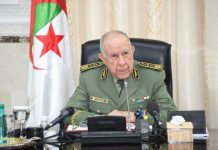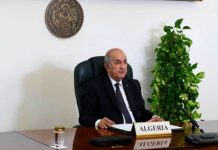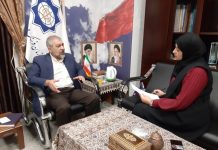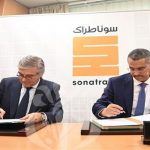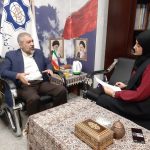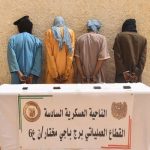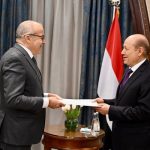ALGIERS - The Minister of Energy and Mines, Mohamed Arkab, received, on Tuesday, the North Africa Director of the International Finance Corporation (World Bank), Cheick Oumar Sylla, with whom he discussed the prospects for cooperation, indicated a press release from the ministry.
During this meeting, which took place at the headquarters of the ministry, “the two parties discussed the state and prospects of cooperation with the International Finance Corporation in the Energy and Mines sector”, specified the same source.
They also discussed various issues related, in particular, to the problems and opportunities for financing structuring energy and mining projects and more particularly those dedicated to energy diversification and the development of new and renewable energies in Algeria, as well as in terms of expertise, engineering and studies of structuring projects, concluded the press release.
It is worth recalling that the Minister of Energy and Mines, Mohamed Arkab, will take part, on Wednesday in Vienna, in the work of the 33rd OPEC – Non-OPEC (OPEC+) ministerial meeting, which will examine the situation of the international oil market and its prospects for short-term development, said, on Tuesday, a statement from the ministry.
This meeting will be held at OPEC headquarters in Vienna (Austria) for the first time since March 2020 because of the outbreak of the Covid-19 pandemic.
Bringing together the 23 countries (13 OPEC countries and 10 non-OPEC ones) signatories of the Declaration of Cooperation, this meeting will be preceded, on the same day, by the works of the 45th meeting of the Joint Ministerial Monitoring Committee (JMMC), added the same source.
“These two meetings will be devoted to examining the situation of the international oil market and its prospects for short-term development,” the document noted.
The JMMC is made up of OPEC member countries, namely: Algeria, Saudi Arabia, United Arab Emirates, Iraq, Kuwait, Nigeria and Venezuela, as well as two non-member countries, in this case, Russia and Kazakhstan.
During its 32nd ministerial meeting, the Organization of the Petroleum Exporting Countries and its allies, referred to as “OPEC”, decided to reduce production by 100000 barrels a day, taking supplies back to August levels.
Since August 2021, OPEC+ production has increased by 400,000 b/d before reaching 432,000 b/d, then 648,000 b/d, then falling to 100,000 b/d recently.
OPEC celebrates 6th anniversary of historic Algiers Agreement:
On September 28th, 2022, the Organization of the Petroleum Exporting Countries (OPEC) marked the sixth anniversary of the adoption of the landmark ‘Algiers Accord’, signed during the 170th meeting of the Organization’s Conference held on 28 September 2016 in Algiers.
“Six years ago, the OPEC Conference held its 170th (Extraordinary) Meeting in the Algerian capital to discuss oil market developments and deliberate ways to address the severe market imbalance. Among the key decisions taken was the establishment of a high-level committee mandated to develop a framework for consultations between OPEC and non-OPEC oil-producing countries,” the organization said, on Wednesday, on its website.
“These pivotal decisions eventually led to the signing of the ‘Vienna Agreement’ at the 171st Meeting of the OPEC Conference on 30 November 2016 and the historic ‘Declaration of Cooperation’ (DoC) between OPEC and non-OPEC participating countries on 10 December of the same year in Vienna, Austria,” recalled the Organization.
In reflecting on the anniversary, HE Haitham Al Ghais, OPEC Secretary General, said: “The signing of the ‘Algiers Accord’ signifies an important moment in the history of the global oil industry, as it laid the foundation for what later became an unprecedented framework of cooperation between OPEC Member Countries and non-OPEC oil-producing countries, known as the ‘Declaration of Cooperation’.
“Through our collective efforts, the 23 countries participating in the DoC have together supported oil market stability in the interest of all producers, consumers, investors and the global economy at large for almost six years. There is no doubt that we would be in a different situation if not for the pivotal decisions taken in Algiers in 2016,” the Secretary General added.
Earlier this month, the Organization marked the 62nd anniversary since its founding in 1960 in Baghdad, Iraq, by the five Founder Members: Iran, Iraq, Kuwait, Saudi Arabia and Venezuela. OPEC is currently made up of 13 Member Countries.












